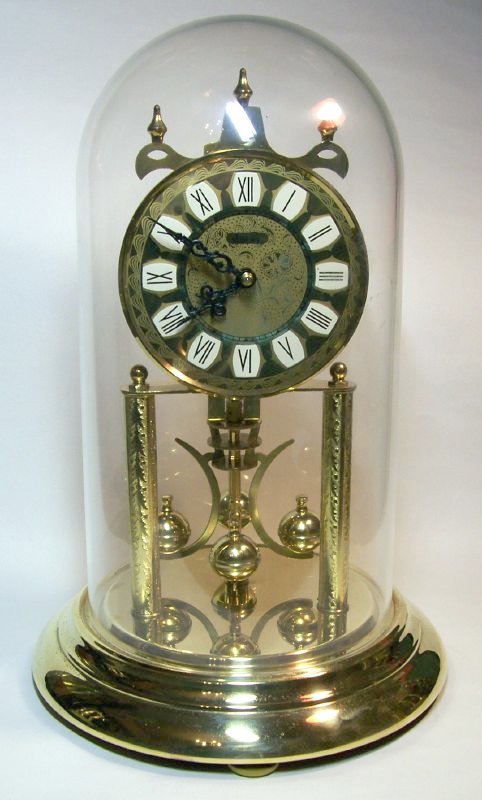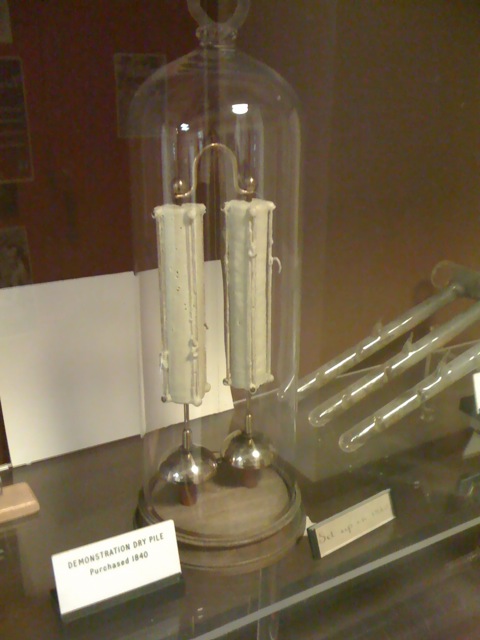How did I get here?
While lying in bed, unwell and off work, last month, I found myself surfing (on my new phone) to the Wikipedia page on torsion springs. And that’s when I found myself wondering – how did I get here?
Thankfully, there’s always the back button: famously the second most-used bit of your web browser’s user interface. So… how did I come to be reading about torsion springs?

- I got there from reading about torsion pendulum clocks. My grandmother used to have one of these (an “anniversary clock”, like the one above, and I remember that I used to always enjoy watching the balls spin when I was a child).
- I’d followed a link from the article about the Atmos clock, a type of torsion pendulum clock that uses minute variations in atmospheric temperature and pressure to power the winder and which, in ideal circumstances, will never need winding.
- Before that, I’d been reading about the Beverly Clock, a classic timepiece that’s another example of an atmospheric-pressure-clock. It’s been running for almost 150 years despite having never been wound.
- This was an example of another long-running experiment given on the page about the Oxford Electric Bell, which is perhaps the world’s longest-running scientific experiment. Built in 1840, it uses a pair of electrostatic batteries to continuously ring a bell.

- I got to the Oxford Electric Bell from another long-running experiment – the one acknowledged as the world’s longest-running by the Guinness Book of Records – the University of Queensland Pitch Drop Experiment. Running since 1927, this experiment demonstrates that pitch is not solid but a high-viscosity fluid. A sample of room-temperature pitch in a funnel forms a droplet about once a decade.
- Earlier, I was learning about the difference between the different substances we call tar. Traditionally, tar is derived by baking pine wood and roots into charcoal, and collecting the runoff, but we also use the word “tar” to describe coal tar (a byproduct of coke production) and bitumen (viscous, sticky crude oil).
- I took the initiative to learn about those differences after reading about the name “Jack Tar“, an Empire-era slang term for a sailor in the Merchant Navy or Royal Navy…
- …which in turn was linked from the similar article about “Tommy Atkins“, a term for a British infantryman (particularly in the First World War), which has an interesting history…
- …to which I got from the “Doughboy” article. The Doughboys were members of the American Expeditionary Force during the First World War.

- Finally, I got to that first Wikipedia article while, when reading an article on The Paleofuture Blog, I wondered about the etymology of the term “doughboy”, and began this whole link-clicking adventure.
It’s fascinating to work out “how you got here” after an extended exploration of a site like Wikipedia (or TV Tropes, or Changing Minds, or Uncyclopedia – and there goes your weekend…). Thank you, Back Button.
I just wish I had a Back Button in my head so that I could “wind back” my wandering thought processes. How did I end up thinking about the salt content of airline food, exactly?